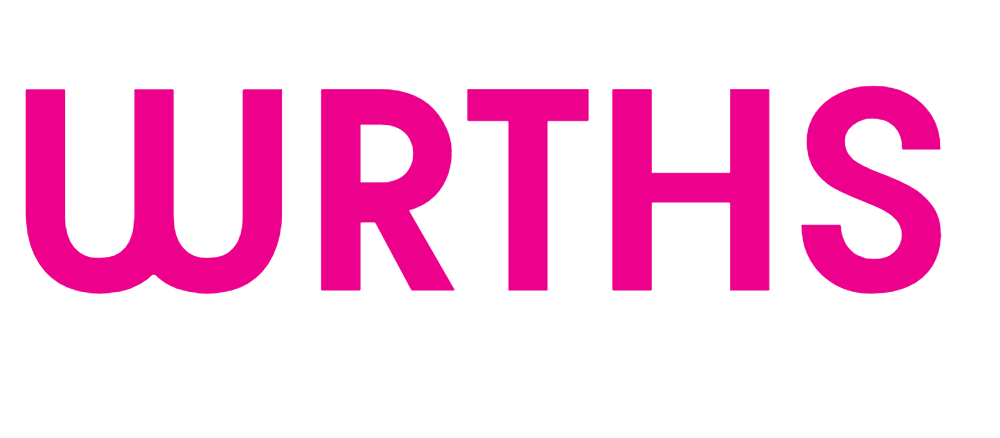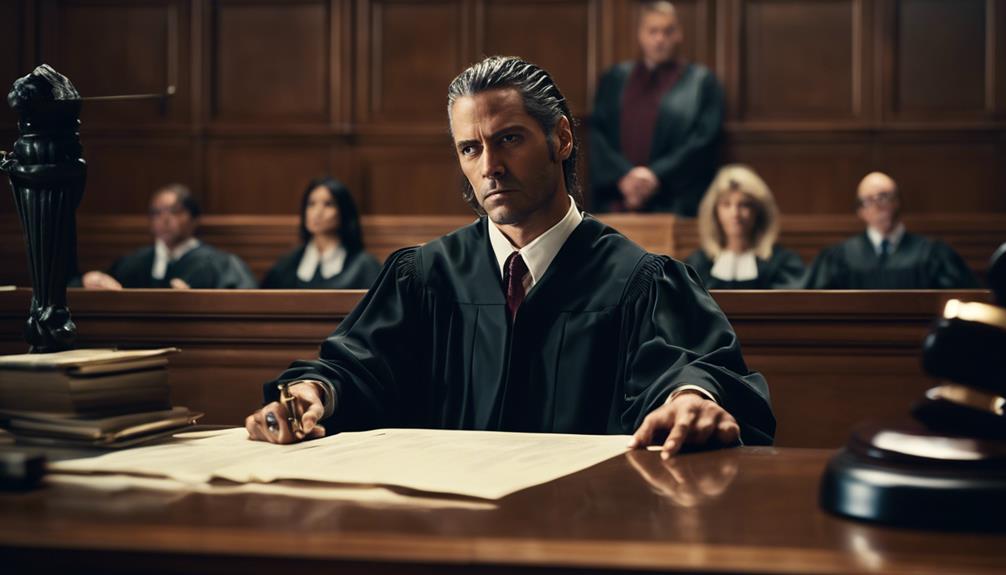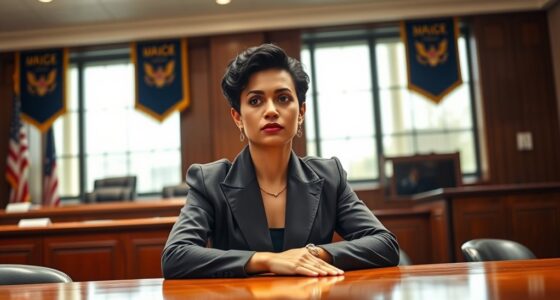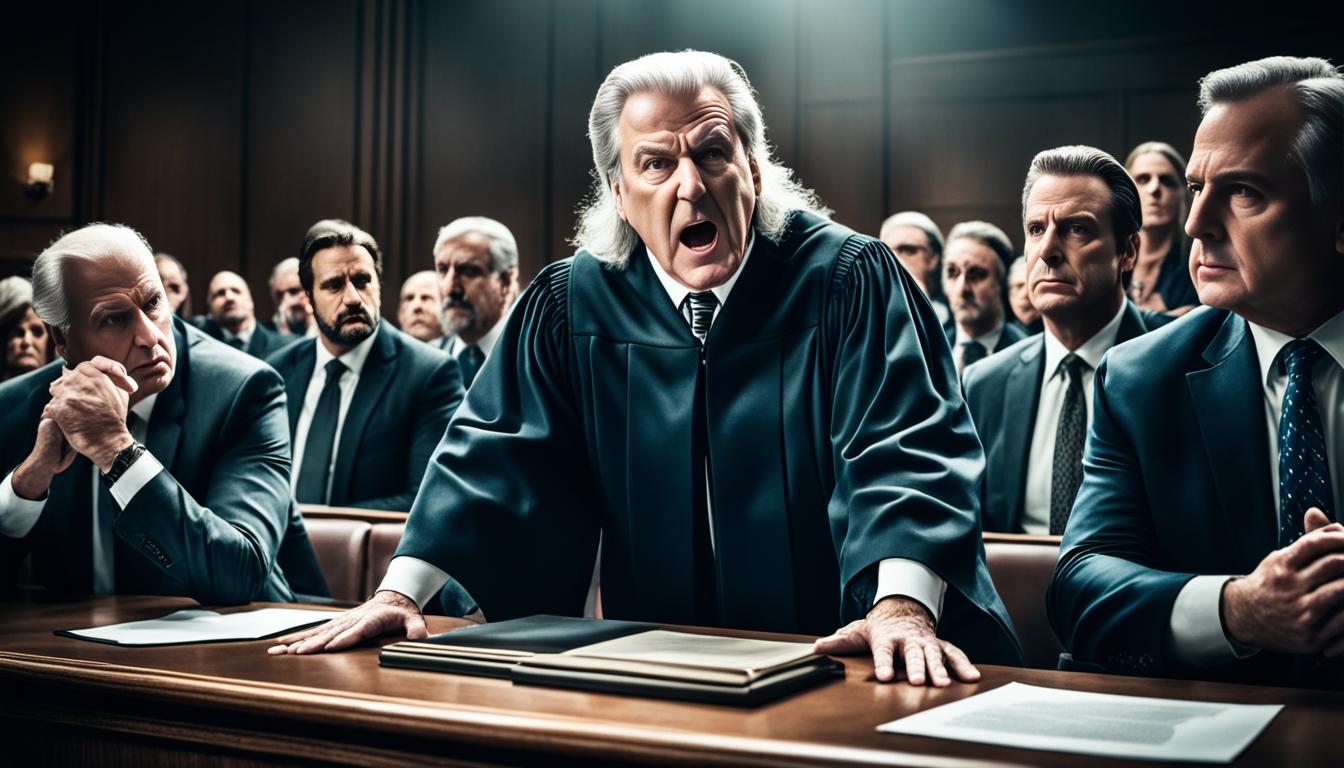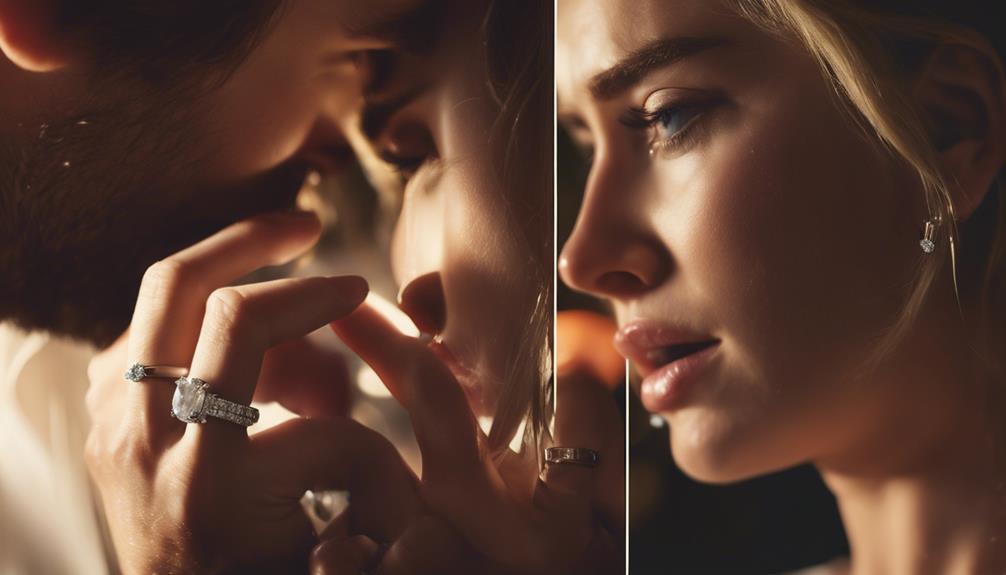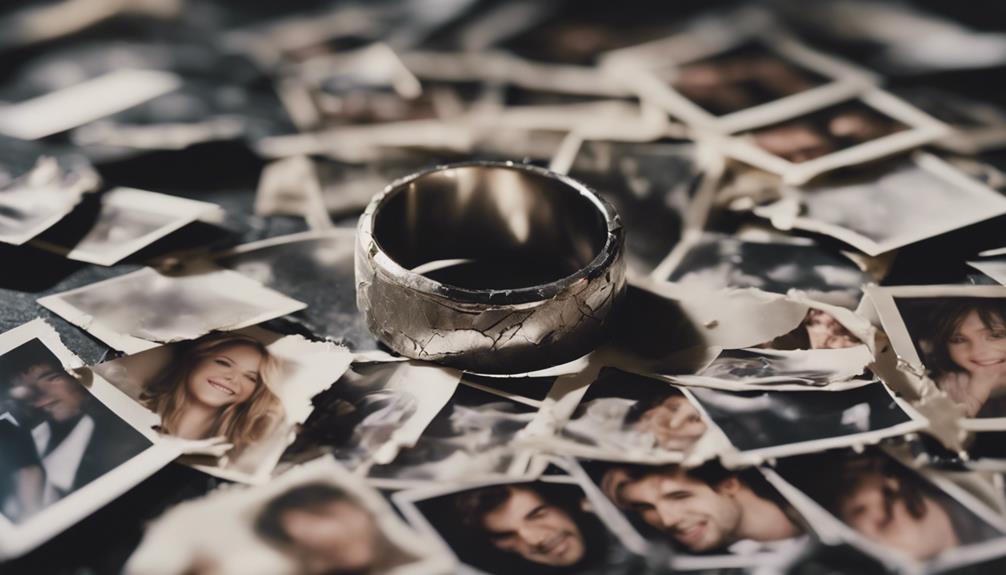Celebrities like Katy Perry, Gigi Hadid, and Jennifer Lopez are frequently embroiled in lawsuits filed by paparazzi agencies for copyright infringement. These cases often involve sharing paparazzi-taken photos without permission, with celebrities arguing fair use under Section 107 of the Copyright Act. Settlements and ongoing litigation highlight the need for clearer guidelines on copyright ownership in paparazzi photos. The disputes underscore the importance of understanding intellectual property rights, particularly in the digital age. As the entertainment industry continues to navigate the complexities of copyright law, one thing is clear: the cost of creativity can be steep. Further exploration of these high-profile cases reveals even more insights into the intricate world of celebrity culture and copyright law.
Key Takeaways
• Celebrities like Katy Perry, Gigi Hadid, and Jennifer Lopez face lawsuits from paparazzi agencies for copyright infringement over shared photos.
• Fair use arguments under Section 107 of the Copyright Act are often raised, but cases usually settle out of court, highlighting the need for clearer guidelines.
• Intellectual property rights are crucial in the entertainment industry, as seen in Katy Perry's lawsuit over the song 'Dark Horse' and other music theft allegations.
• Celebrities battle to control their image and likeness on social media, navigating legal complexities and image rights issues.
• High-profile lawsuits and damages emphasize the importance of understanding copyright laws and permissions when using images in the public domain.
Celebrities in Legal Crosshairs
Caught in the legal crosshairs, A-list celebrities like Katy Perry, Gigi Hadid, and Jennifer Lopez have found themselves entangled in a web of copyright lawsuits for posting paparazzi-taken photos on social media without permission.
These lawsuits, filed by paparazzi agencies, allege copyright infringement and seek compensation for the unauthorized use of their photos. Celebrities have argued that their use of these photos falls under fair use exceptions, as outlined in Section 107 of the Copyright Act.
However, paparazzi agencies claim that the commercial exploitation of these photos on social media platforms constitutes copyright infringement. Many of these cases have been settled out of court, but the legal battles over photo ownership highlight the tension between celebrities' desire to share their lives on social media and the copyright protection afforded to photographers.
The economic impact of these lawsuits has raised concerns about the commercial exploitation of paparazzi photos, and the need for clearer guidelines on permission and usage.
Famous Faces, Familiar Lawsuits
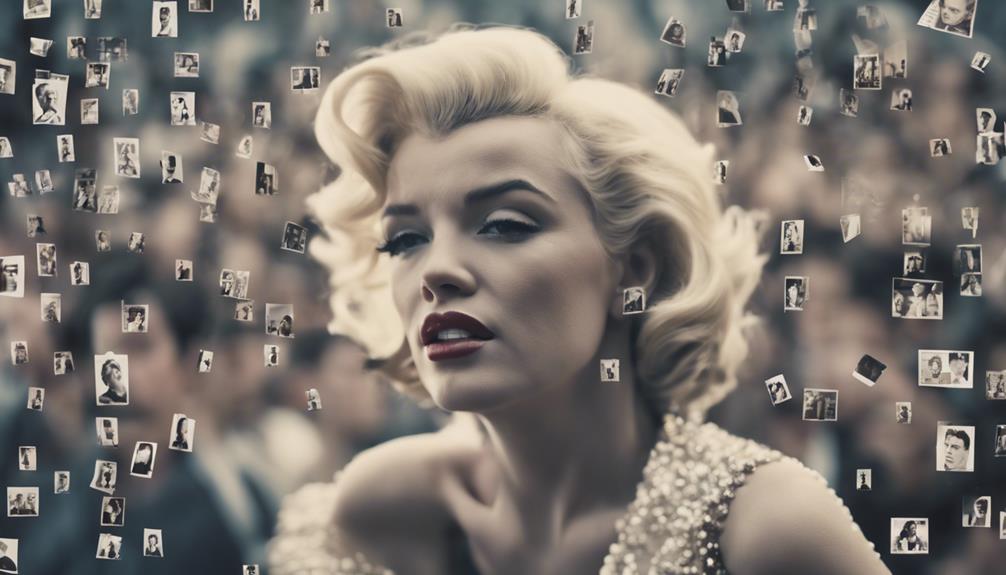
Celebrity copyright claims have become a familiar narrative, with high-profile figures like Katy Perry and Jennifer Lopez facing lawsuits for posting paparazzi-taken photos on social media without permission. These cases highlight the tension between celebrities' desire to share their personal lives with their fans and the photographers' rights to their copyrighted work.
As the lines between personal and public domains continue to blur, it's essential to examine the legal implications of these actions.
Celebrity Copyright Claims
From red carpets to social media feeds, famous faces are frequently slapped with lawsuits for sharing paparazzi-taken photos without permission. Celebrities like Katy Perry, Gigi Hadid, and Jennifer Lopez have faced lawsuits for copyright infringement, highlighting the need for clearer legal guidelines.
| Celebrity | Lawsuit | Outcome |
|---|---|---|
| Katy Perry | Copyright infringement | Settled out of court |
| Gigi Hadid | Copyright infringement | Settled out of court |
| Jennifer Lopez | Copyright infringement | Ongoing litigation |
Celebrities argue that posting paparazzi photos on social media is fair use under Section 107 of the Copyright Act. However, paparazzi agencies claim that sharing these photos without permission infringes on their exclusive rights granted by copyright law. Legal battles between celebrities and paparazzi agencies have led to settlements and ongoing litigation, emphasizing the need for clearer guidelines to reduce copyright infringement suits.
Celebrity-Inspired Infringement Cases
As the lawsuits against Katy Perry, Gigi Hadid, and Jennifer Lopez demonstrate, the blurred lines between fair use and copyright infringement have given rise to a new wave of celebrity-inspired infringement cases. These lawsuits often stem from celebrities posting paparazzi-taken photos on social media without permission, sparking legal battles over copyright ownership.
Under copyright law, photographers and paparazzi agencies hold exclusive rights to reproduce, distribute, or publish protected works, including photographs. Celebrities have argued fair use exceptions, citing factors like purpose and impact on the market, but paparazzi agencies often file suits, leading to many cases being settled out of court.
The lack of clear guidelines on copyright ownership in paparazzi photos has led to a surge in infringement suits. To reduce these legal battles, clearer guidelines are needed to define the boundaries of fair use and copyright infringement. By establishing clearer guidelines, celebrities and photographers can better understand their rights and responsibilities, reducing the number of lawsuits and promoting a more respectful use of copyrighted materials.
IP Infringement in Pop Culture

IP infringement in pop culture is a pervasive issue, with music theft allegations and celebrity IP battles making headlines. High-profile cases involving artists like Katy Perry and Jennifer Lopez have brought attention to the complexities of copyright law in the digital age.
As the music and entertainment industries continue to evolve, the importance of protecting intellectual property rights will only continue to grow.
Music Theft Allegations
One high-profile example of music theft allegations in pop culture is the lawsuit against Katy Perry over her hit song 'Dark Horse,' which sparked a heated debate about originality and intellectual property rights in the music industry. The lawsuit, filed by Marcus Gray, alleged that Perry's song copied elements from his own song, 'Joyful Noise.' The lawsuit resulted in Gray being awarded damages of $2.78 million in 2019, which was later overturned in 2020.
The case highlighted the contentious issue of music theft allegations in the pop culture industry. The outcome of the lawsuit raised questions about originality and intellectual property rights in the music industry.
- Katy Perry faced legal repercussions over copyright infringement accusations related to the hit song 'Dark Horse.'
- The lawsuit sparked a heated debate about originality and intellectual property rights in the music industry.
- The outcome of the lawsuit raised questions about the responsibility of artists to guarantee originality in their work.
Celebrity IP Battles
Beyond the world of music theft allegations, celebrities face another significant intellectual property challenge in their daily lives: the battle to control their image and likeness on social media. Katy Perry, Gigi Hadid, and Jennifer Lopez have faced lawsuits for posting paparazzi-taken photos on social media without permission. Paparazzi agencies have filed suits against celebrities for copyright infringement, with many cases settled out of court. Celebrities argue fair use exceptions for posting paparazzi-taken photos on social media, but risk legal challenges when using these photos without permission.
The right of publicity is a key defense used by celebrities to control the use of their likeness and avoid exploitation. By posting paparazzi photos without permission, celebrities risk copyright infringement lawsuits. However, they may argue that using paparazzi photos on social media constitutes fair use. Despite this, celebrities must be cautious when using paparazzi photos to avoid legal challenges. The battle for control over their image and likeness on social media is an ongoing struggle for celebrities, with copyright infringement and the right of publicity at the forefront of these legal battles.
When Creativity Meets Litigation
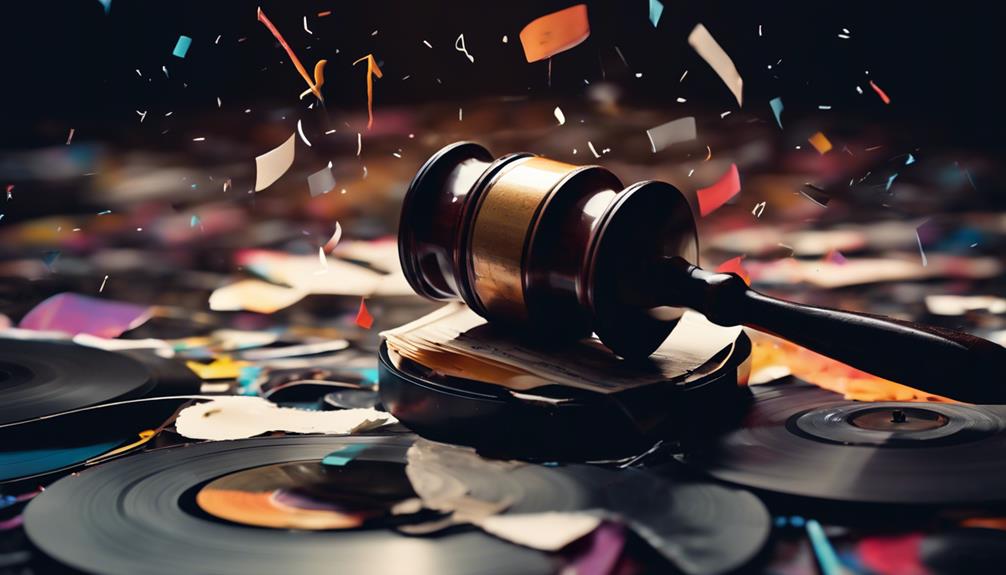
As celebrities increasingly blur the lines between self-expression and copyright infringement on social media, the creative license they take with paparazzi-taken photos can land them in court, sparking a contentious debate about the limits of artistic freedom.
Celebrities like Katy Perry, Gigi Hadid, and Jennifer Lopez have faced lawsuits for posting paparazzi-taken photos on social media without permission. This highlights the importance of understanding intellectual property rights in the entertainment industry. Copyright law grants exclusive rights to reproduce, distribute, or publish protected works, leading to legal battles in the entertainment industry.
Paparazzi agencies often file suits against celebrities for copyright infringement, with many cases being settled out of court to avoid prolonged legal battles.
Social media platforms make it easier to repost photos without acknowledging the copyright holders, raising concerns about intellectual property rights.
The intersection of creativity and litigation in copyright lawsuits involving celebrities highlights the importance of understanding intellectual property rights in the entertainment industry.
Copyright Cases in the Spotlight
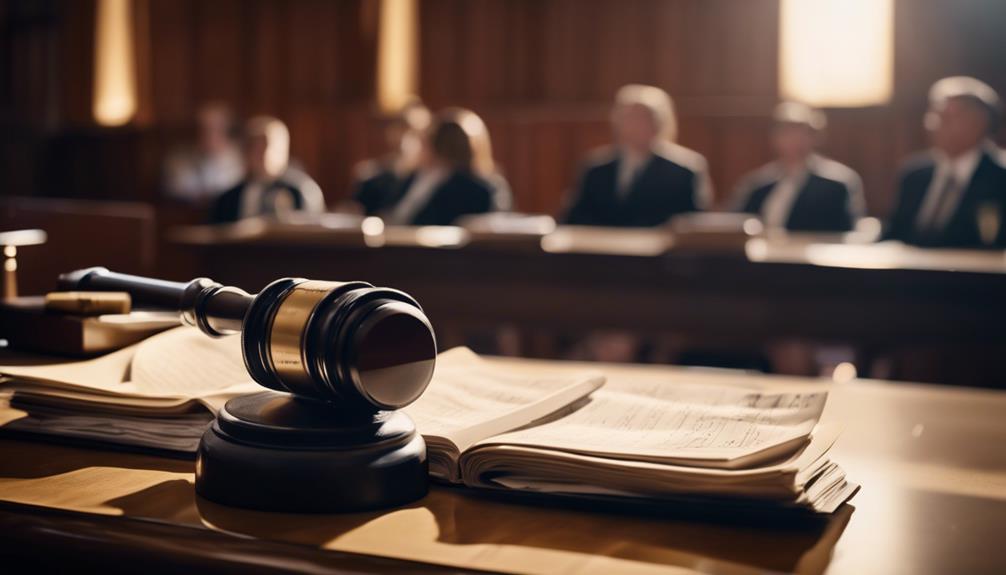
High-profile celebrities like Katy Perry, Gigi Hadid, and Jennifer Lopez have encountered challenges in a web of copyright lawsuits, sparking a heated debate about the boundaries of creative freedom in the digital age.
These celebrities have grappled with legal battles over photo ownership and usage, with paparazzi agencies targeting them for copyright infringement. Katy Perry, for instance, faced a lawsuit for posting a paparazzi-taken photo on social media without permission, highlighting the difficulties of maneuvering copyright laws in the entertainment industry.
Gigi Hadid, on the other hand, argued fair use when posting paparazzi-taken photos on social media, bringing attention to the application of copyright law for celebrities.
Similarly, Jennifer Lopez encountered a lawsuit for sharing paparazzi photos on social media without authorization, showcasing the legal complexities around image rights in the digital age.
These cases often result in settlements involving financial compensation and agreements on photo usage, underscoring the need for clearer legal guidelines in the entertainment industry.
Stars, Lawsuits, and Damages
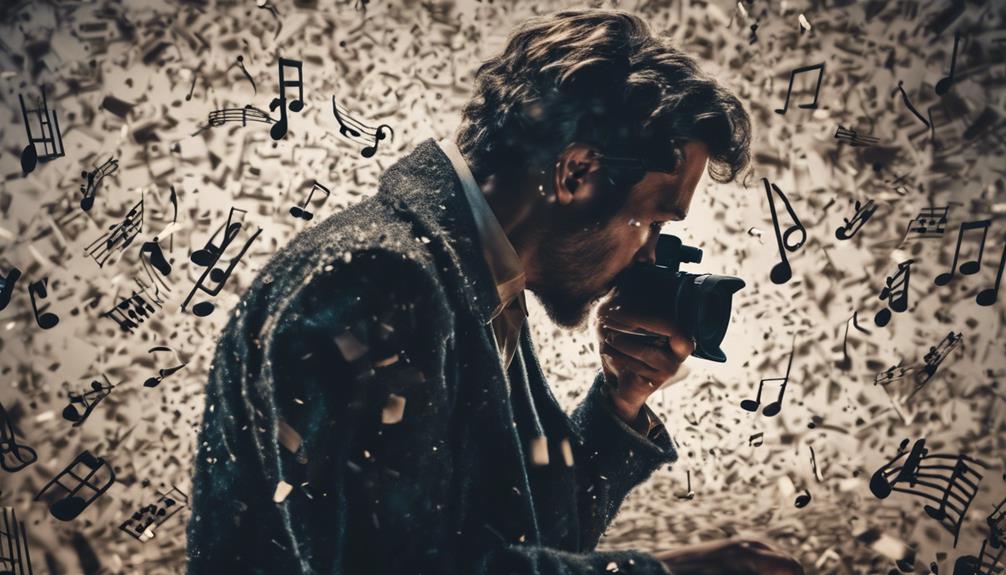
Since the dawn of social media, celebrities have been embroiled in costly legal battles, with lawsuits and damages piling up over unauthorized photo usage. Celebrities like Katy Perry, Gigi Hadid, and Jennifer Lopez have faced lawsuits for sharing paparazzi-taken photos on social media without permission. These lawsuits have resulted in damages awarded to photographers and paparazzi agencies.
Some notable examples include:
- In 2019, a paparazzi agency sued Katy Perry for posting a photo of herself on Instagram without permission, resulting in a $68,000 settlement.
- Gigi Hadid was sued by a paparazzo for posting a photo of herself on Instagram, which she eventually settled out of court.
- Jennifer Lopez was sued by a photographer for sharing a photo of herself on social media without permission, resulting in a $150,000 settlement.
These lawsuits highlight the importance of understanding copyright laws and permissions when using images in the public domain. Copyright infringement cases involving celebrities serve as a reminder of the legal consequences of using copyrighted material without proper authorization.
Frequently Asked Questions
Are Copyright Lawsuits Expensive?
She notes that copyright lawsuits can be extremely costly, with legal fees, damages, and settlements ranging from thousands to millions of dollars. High-profile cases, such as Katy Perry's and Gigi Hadid's copyright infringement lawsuits, demonstrate the significant financial risks involved.
Settlements often involve substantial monetary compensation, impacting celebrities' finances, and legal battles can result in substantial financial burdens.
What Is the Most Famous Case of Copyright Infringement?
The most famous case of copyright infringement involves Robin Thicke and Pharrell Williams, who were ordered to pay $5 million in damages for their song 'Blurred Lines.'
The lawsuit, filed by Marvin Gaye's estate, claimed that 'Blurred Lines' copied Gaye's song 'Got to Give It Up.'
This landmark case highlighted the importance of proving originality in music creation and underscored the need for fair and accurate judgments in copyright infringement cases.
What Is the Average Settlement for Copyright Infringement?
She notes that the average settlement amount for copyright infringement cases varies widely, ranging from thousands to millions of dollars.
Since settlements are often confidential, determining a specific average amount is challenging. Factors influencing settlement amounts include the extent of infringement, financial standing of parties involved, and evidence strength.
High-profile cases have seen multimillion-dollar settlements, reflecting the value of intellectual property rights.
Which Song Was the Subject of a Famous Copyright Infringement Lawsuit?
The song 'Blurred Lines' by Robin Thicke and Pharrell Williams was the subject of a famous copyright infringement lawsuit.
This lawsuit alleged that 'Blurred Lines' copied elements from Marvin Gaye's song 'Got to Give It Up.'
The court ultimately ruled in favor of Gaye's estate, ordering Thicke and Williams to pay $5 million in damages.
Conclusion
Celebrities, often hailed as creative visionaries, frequently find themselves entangled in copyright lawsuits. The consequences of IP infringement can be severe, with damages ranging from financial losses to reputational harm.
As singer-songwriter Sam Smith stated, 'I'm a songwriter, not a lawyer.' Yet, celebrities must navigate the complexities of copyright law to protect their intellectual property.
By examining high-profile cases, it becomes clear that creativity and litigation are intertwined, and understanding the intricacies of copyright law is essential for artists to thrive in the entertainment industry.
